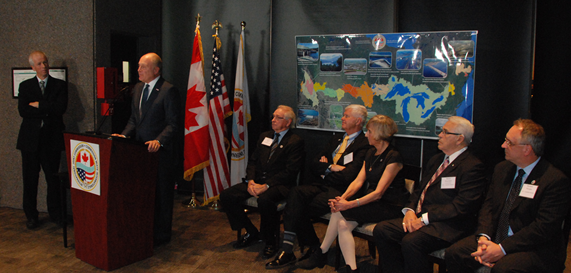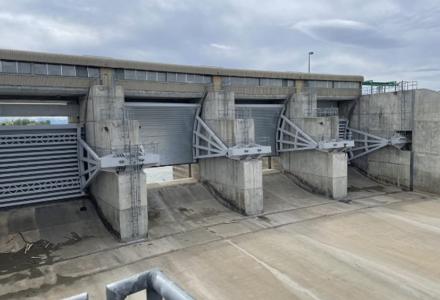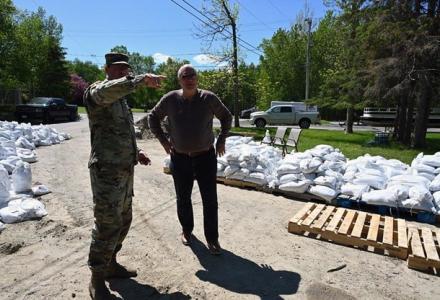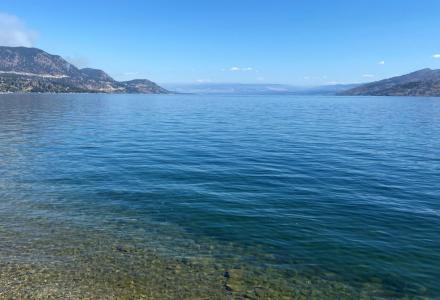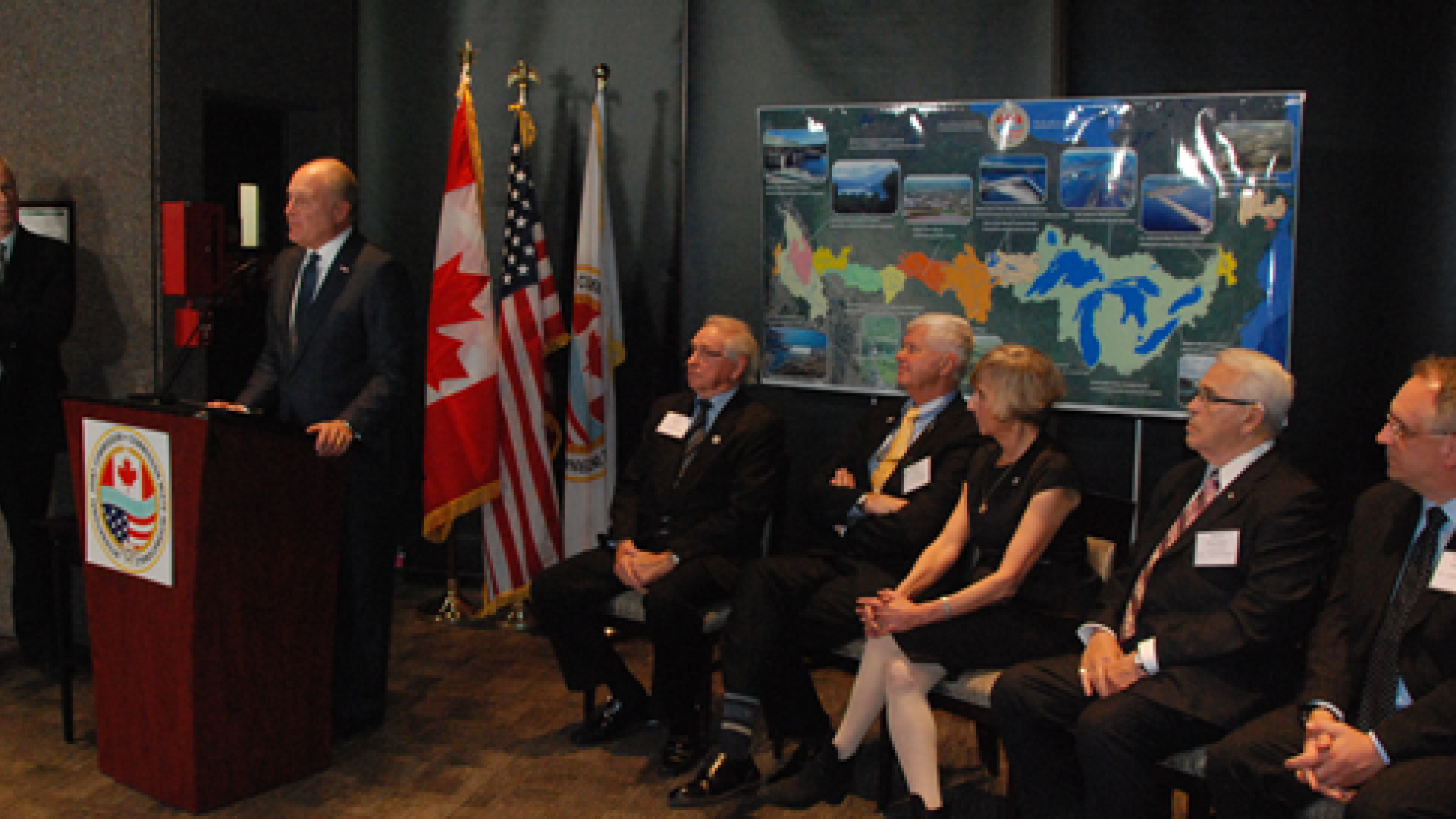
Canada’s Minister of Foreign Affairs Stéphane Dion and US Ambassador to Canada Bruce Heyman spoke at the IJC’s recent Fall Semi-Annual Meeting in Ottawa.
Here are excerpts from their talk. We appreciate their presence at our gathering and their kind words.
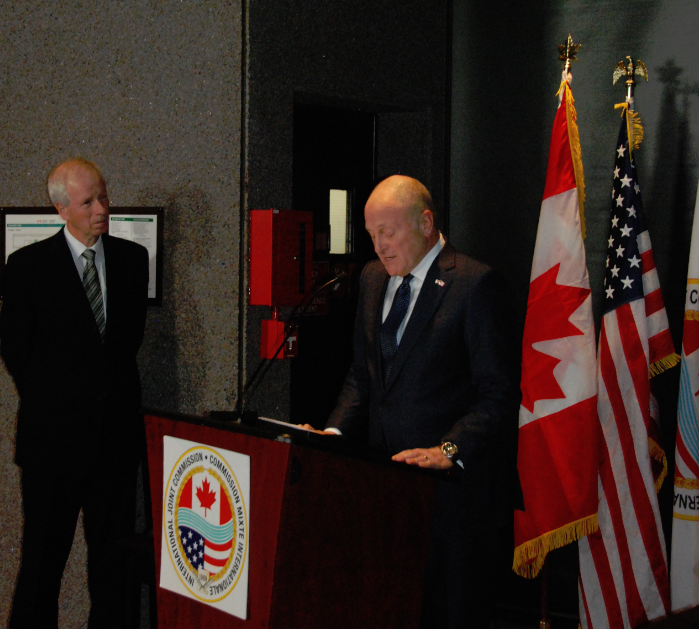
Dion: The challenge of ensuring that waters are managed jointly and effectively will grow for riparian states around the globe. Of the world’s 263 international water basins, 158 lack any type of cooperative framework. As water-related issues are exacerbated by climate change, the risk for tension and conflict will rise, particularly where there are no cooperative frameworks. …
You consult. You build consensus. You seek public participation. You engage local governments and First Nations. You are objective. And you rely on scientific research. …
Throughout the world, states must constantly make choices and decisions about water management. For example, water shortages could be addressed through irrigation improvement in one country to the disadvantage of countries downstream if there is neither a keen attention to a conflict-sensitive approach nor proper cooperation. …
Joint management practices and governance mechanisms, as carried out through the work of the IJC, provide a model for how boundary and transboundary water disputes can be managed and avoided.
We should share this model with other riparian states so they can apply it too.
Heyman: For more than 100 years, the IJC has enabled the United States and Canadian governments to manage the levels and flows of our shared waters and has provided expert advice and guidance to help us find solutions that meet the needs of both countries.
The IJC is as important today as when it was established in 1909, as we continue to face a range of trans-boundary water challenges. The United States and Canada jointly contribute resources and expertise to support the IJC. People around the world look to the IJC organization as a model for how to work together.
The long, productive history of the IJC reflects the strength and continuity of institutions that guide our stewardship of natural resources. The IJC is a prime example of how closely we cooperate on these issues – our technical agencies, including all of you here tonight, work directly with one another on transboundary and boundary waters all across the country. …
We will have a new administration taking office in the United States in January. I am confident that no matter who occupies the White House, the United States and Canada will remain engaged neighbors, prosperous partners, stalwart allies, and the best of friends.
